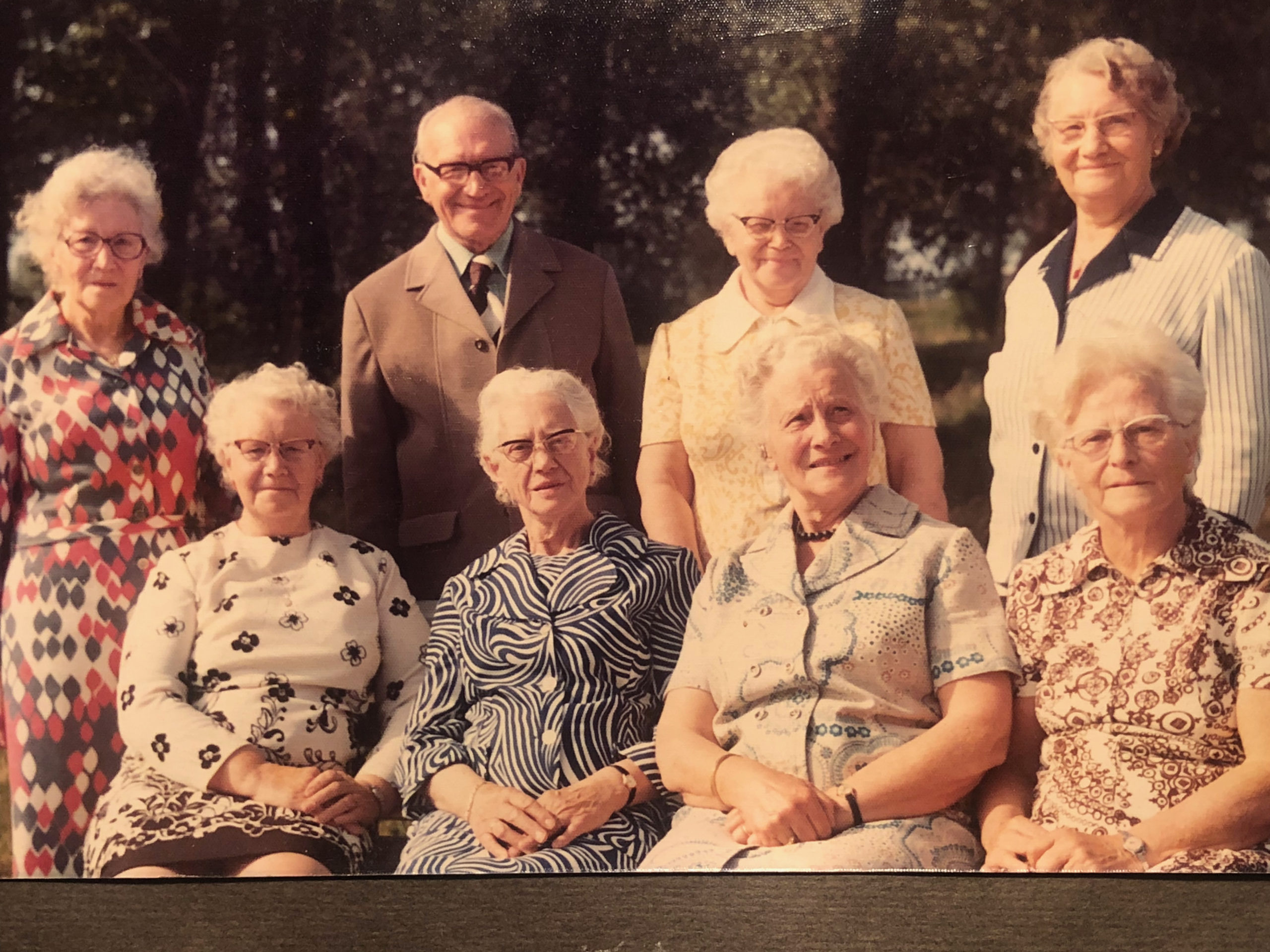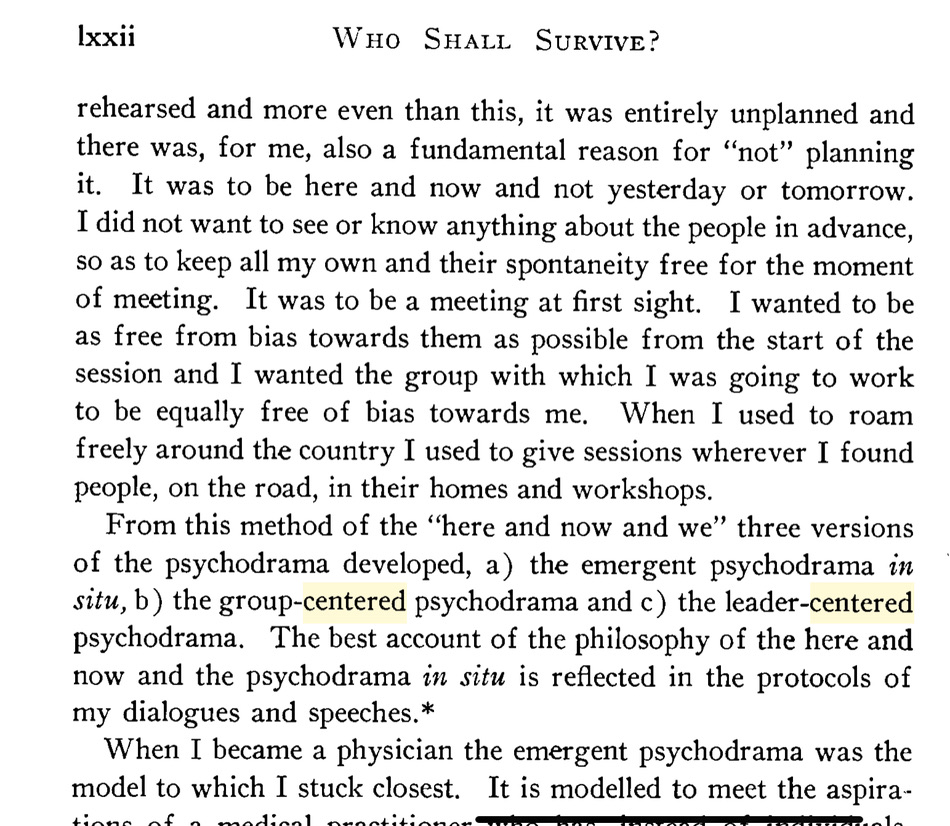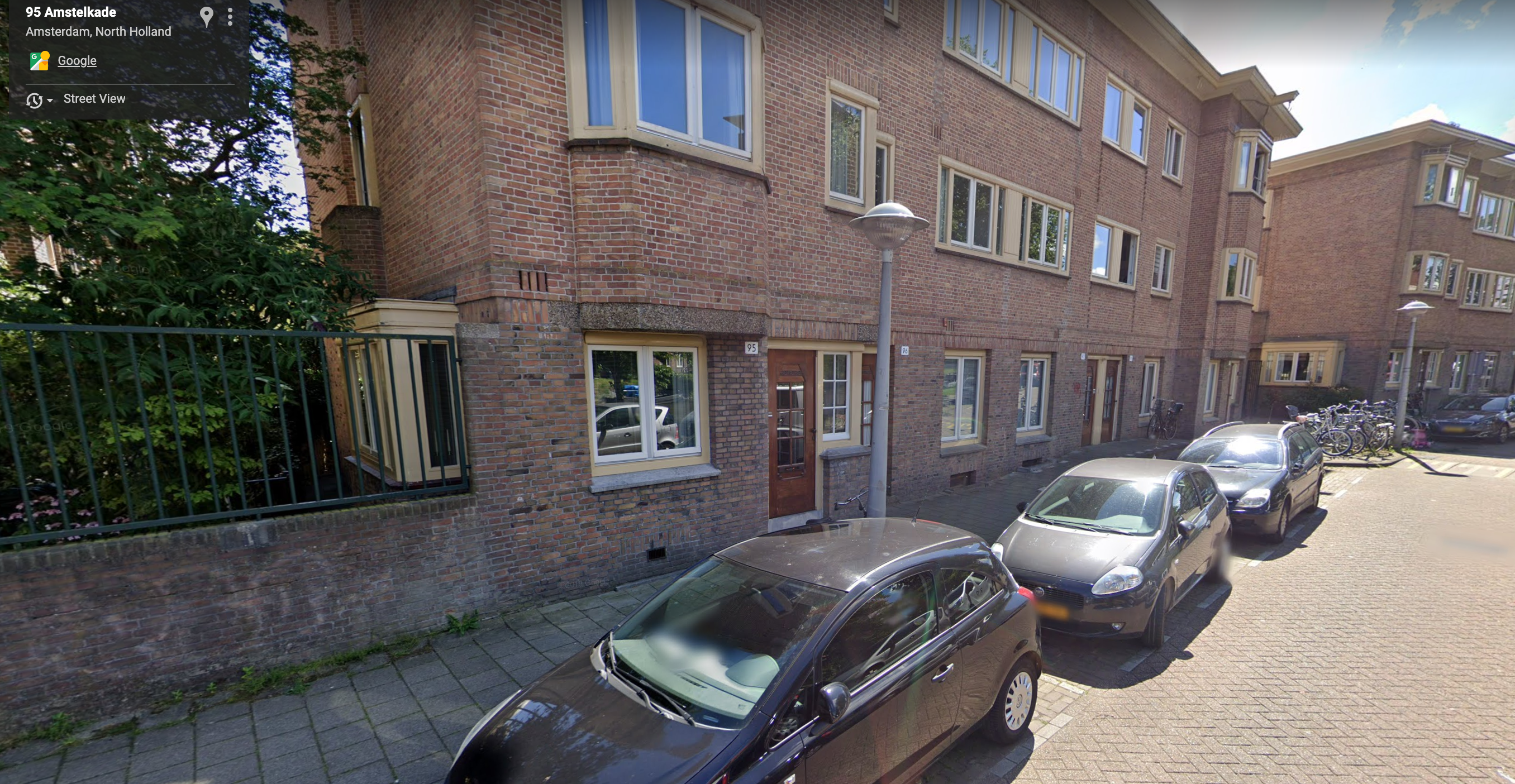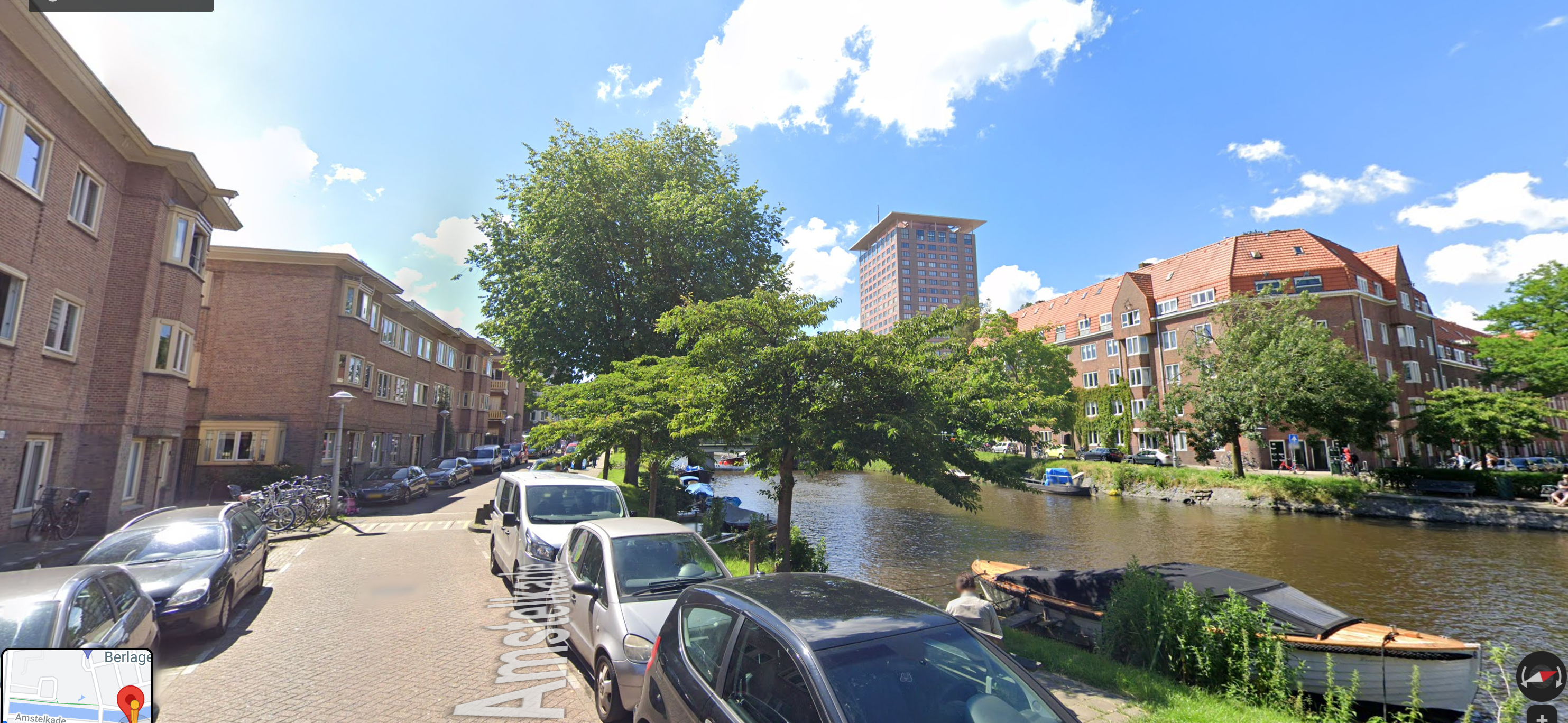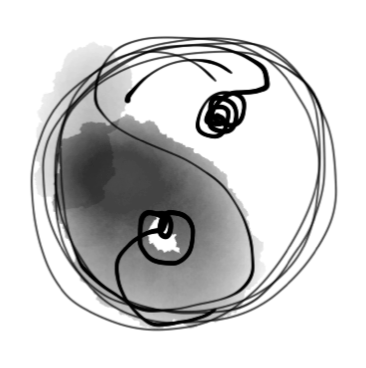That’s my father with his seven sisters in the seventies?
Protagonist, group or leader centered psychodrama? Terminology
The term “group centered” is used in Australia and New Zealand psychodrama circles with respect to warm-up and also with respect to the drama itself.
Firstly with respect to the drama. I recall Max Clayton’s teaching when the group was under the misapprehension that sociodrama was always group centred i.e. without a specific protagonist, and psychodrama always had a protagonist. He then demonstrated a protagonist centred sociodrama, i.e. one based around the social roles in one person’s work situation. On rare occasions, I have seen a group centered psychodrama, one that began as a sociogram. An isolate emerged and the group then worked collaboratively with that person to include them.
With respect to warm-up, I am familiar with the usage where a “director directed warm-up” is contrasted with a “group centered warm-up”.
I have found a passage in “Who Shall Survive?” where Moreno talks about “centeredness.” and his usage is a bit different.
I doubt that we would use “leader centered” for psychodrama. If there is a psychodrama, then it is based on the group or the protagonist as the central focus. Emergent psychodrama sounds interesting but is not related to this discussion as far as I can see. I imagine all our groups are “group centered” in the way the word is used in the passage from “Who Shall Survive?” Even director directed warm-ups lead to group or protagonist centered psychodrama.
What has sparked my interest in this linguistic exploration is that I have been working with couples in groups in a variety of ways. I want to use the words “relationship centered psychodrama”. I think there are many ways to be “relationship centered”. I think more exploration is needed as being protagonist centered can run counter to the needs of a couple. I am writing another post on relationship centered psychodrama as I research the variety of ways this can be done and also the way Moreno tackled this in the past.
Two GTD notions
Searching for artist.
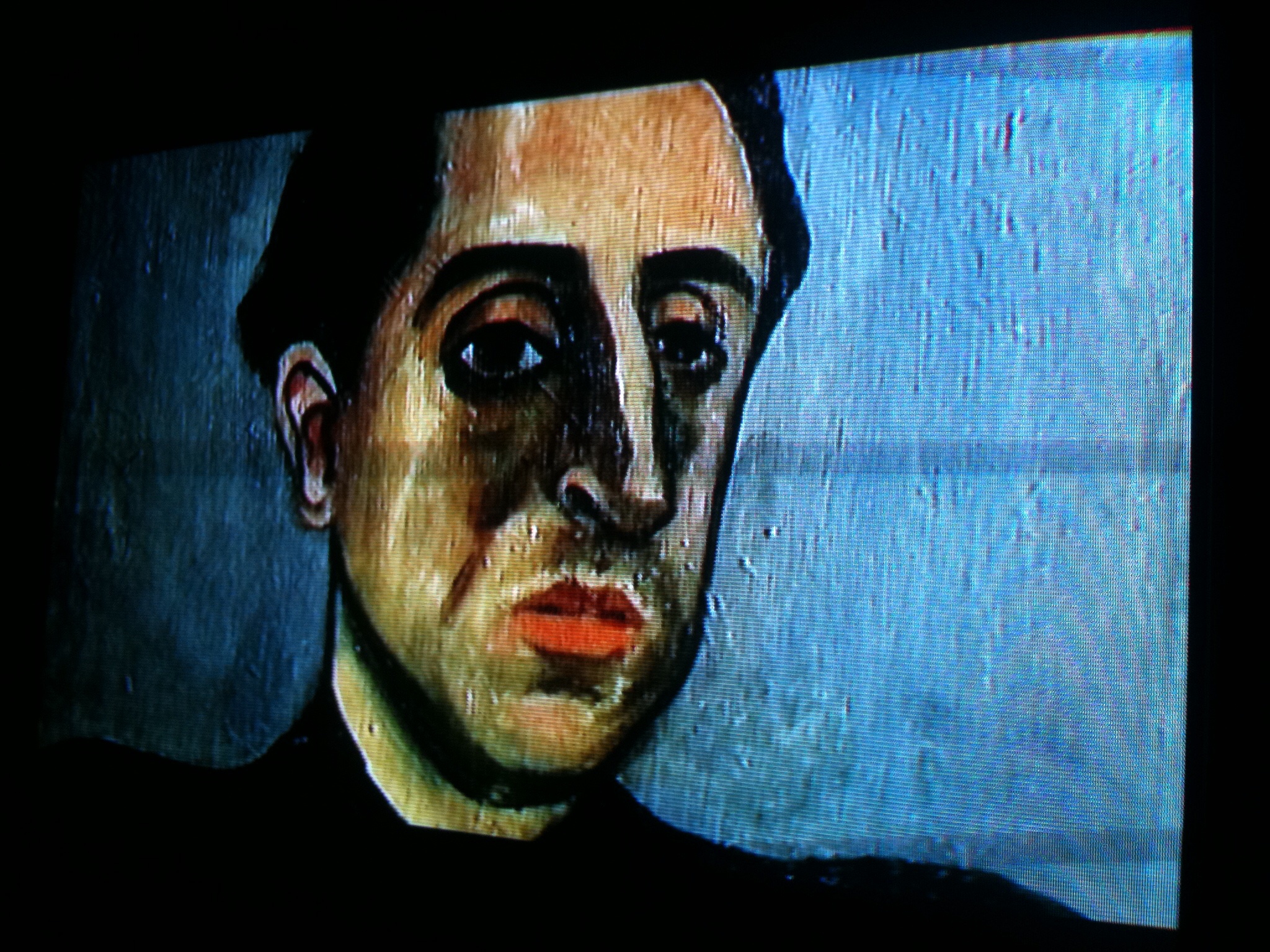
Places — reflecting places in my life.
Just streets. But no, the place that evokes my childhood. Except for the cars it’s all the same. Oh and perhaps the skyscraper. I think as child there was just a field there and a circus tent used to be there.
96 Amstelkaade Amsterdam
The Amstel canaal across the road.
Lived there from 1944 to 1952.
❋
Plan: To add more crucial places in my life. (I do continue these projects, but they may take years.
The Rime of the Ancient Mariner
I listened to the podcast and enjoyed it:
The Rime of the Ancient Mariner
Melvyn Bragg and guests discuss Coleridge’s poem of a grim voyage in which a sailor shoots an albatross and is forced to tell the story of his crime forever.
More info, but I wanted to see the Dore Images. Here is one:

❋
Wikipedia
The Rime of the Ancient Mariner (originally The Rime of the Ancyent Marinere) is the longest major poem by the English poet Samuel Taylor Coleridge, written in 1797–98 and published in 1798 in the first edition of Lyrical Ballads. Some modern editions use a revised version printed in 1817 that featured a gloss.[1] Along with other poems in Lyrical Ballads, it is often considered a signal shift to modern poetry and the beginning of British Romantic literature.[2]
❋
https://www.poetryfoundation.org/poems/43997/the-rime-of-the-ancient-mariner-text-of-1834
Yin Yang
Theatre of Spontaneity 2021
Here is the printable flyer for Theatre of Spontaneity 2021
Open evenings of Psychodrama in Christchurch
First Tuesday of every month. 6.30 to 9.00pm.
Come and participate in an evening of Psychodrama conducted by experienced group practitioners. Psychodrama is an active and enlivening method which aims to increase spontaneity, strengthen relationships and build community. We explore what emerges in the group on the stage and sometimes the events have a theme. Social or community issues may be to the fore, sometimes the event is more about personal or professional development.
The name Theatre of Spontaneity has its origins in Vienna, early last century, when Jacob Moreno, the founder of psychodrama, conducted theatre in this style.
The event has been happening regularly since February 2013. Usually between 10 and 15 people come. The evenings are conducted by qualified psychodrama directors
You are welcome, no experience necessary.
Please arrive by 6.15pm.
Venue:
Quaker Meeting House, 217 Ferry Road, Christchurch.
Fee:
Koha
Organised by the Canterbury/Westland branch of the Australian and Aotearoa New Zealand Psychodrama Association.
The Ballad of the Drover
Across the stony ridges, across the rolling plain,
Young Harry Dale, the drover, comes riding home again.
And well his stock-horse bears him, and light of heart is he,
And stoutly his old pack-horse is trotting by his knee.
Up Queensland way with cattle he travelled regions vast;
And many months have vanished since home-folk saw him last.
He hums a song of someone he hopes to marry soon;
And hobble-chains and camp-ware keep jingling to the tune.
Beyond the hazy dado against the lower skies,
And yon blue line of ranges the homestead station lies.
Thitherward the drover jogs through the lazy noon,
While hobble-chains and camp-ware keep jingling to a tune.
Continue reading “The Ballad of the Drover”
AANZPA Canterbury/Westland AGM and Pot Luck Dinner — Flyer and Link to Meetup
Psychodrama
**** Potluck Dinner ****
Tuesday 17 November, 7pm
Phillipstown Community Hub
39 Nursery Rd, Phillipstown
Christchurch
Join us for an informal gathering for a potluck dinner from 7pm. Regional AANZPA members, associate members and affiliates welcome Theatre of Spontaneity attendees, Psychodrama trainees, and others interested. This will follow our regional association AGM (6.30-7pm).
https://www.meetup.com/theatre-of-spontaneity/events/274098541/

